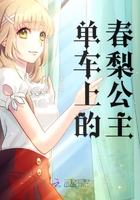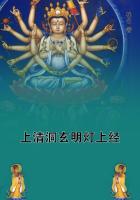MY aunt and I, when we were left alone, talked far into the night. How the emigrants never wrote home, otherwise than cheerfully and hopefully; how Mr. Micawber had actually remitted divers small sums of money, on account of those‘pecuniary liabilities’, in reference to which he had been so business-like as between man and man; how Janet, returning into my aunt's service when she came back to Dover, had finally carried out her renunciation of mankind by entering into wedlock with a thriving tavern-keeper; and how my aunt had finally set her seal on the same great principle, by aiding and abetting the bride, and crowning the marriage-ceremony with her presence; were among our topics—already more or less familiar to me through the letters I had had. Mr. Dick, as usual, was not forgotten. My aunt informed me how he incessantly occupied himself in copying everything he could lay his hands on, and kept King Charles the First at a respectful distance by that semblance of employment; how it was one of the main joys and rewards of her life that he was free and happy, instead of pining in monotonous restraint; and how (as a novel general conclusion) nobody but she could ever fully know what he was.
‘And when, Trot,’said my aunt, patting the back of my hand, as we sat in our old way before the fire,‘when are you going over to Canterbury?’
‘I shall get a horse, and ride over tomorrow morning, aunt, unless you will go with me?’
‘No!’said my aunt, in her short abrupt way.‘I mean to stay where I am.’
Then, I should ride, I said. I could not have come through Canterbury today without stopping, if I had been coming to anyone but her.
She was pleased, but answered,‘Tut, Trot; MY old bones would have kept till tomorrow!’and softly patted my hand again, as I sat looking thoughtfully at the fire.
Thoughtfully, for I could not be here once more, and so near Agnes, without the revival of those regrets with which I had so long been occupied. Softened regrets they might be, teaching me what I had failed to learn when my younger life was all before me, but not the less regrets.‘Oh, Trot,’I seemed to hear my aunt say once more; and I understood her better now—‘Blind, blind, blind!’
We both kept silence for some minutes. When I raised my eyes, I found that she was steadily observant of me. Perhaps she had followed the current of my mind; for it seemed to me an easy one to track now, wilful as it had been once.
‘You will find her father a white-haired old man,’said my aunt,‘though a better man in all other respects—a reclaimed man. Neither will you find him measuring all human interests, and joys, and sorrows, with his one poor little inch-rule now. Trust me, child, such things must shrink very much, before they can be measured off in that way.’
‘Indeed they must,’said I.
‘You will find her,’pursued my aunt,‘as good, as beautiful, as earnest, as disinterested, as she has always been. If I knew higher praise, Trot, I would bestow it on her.’
There was no higher praise for her; no higher reproach for me. Oh, how had I strayed so far away!
‘If she trains the young girls whom she has about her, to be like herself,’said my aunt, earnest even to the filling of her eyes with tears,‘Heaven knows, her life will be well employed! Useful and happy, as she said that day! How could she be otherwise than useful and happy!’
‘Has Agnes any—’I was thinking aloud, rather than speaking.
‘Well? Hey? Any what?’said my aunt, sharply.
‘Any lover,’said I.
‘A score,’cried my aunt, with a kind of indignant pride.‘She might have married twenty times, my dear, since you have been gone!’
‘No doubt,’said I.‘No doubt. But has she any lover who is worthy of her? Agnes could care for no other.’
My aunt sat musing for a little while, with her chin upon her hand. Slowly raising her eyes to mine, she said:
‘I suspect she has an attachment, Trot.’
‘A prosperous one?’said I.
‘Trot,’returned my aunt gravely,‘I can't say. I have no right to tell you even so much. She has never confided it to me, but I suspect it.’
She looked so attentively and anxiously at me (I even saw her tremble), that I felt now, more than ever, that she had followed my late thoughts. I summoned all the resolutions I had made, in all those many days and nights, and all those many conflicts of my heart.
‘If it should be so,’I began,‘and I hope it is—’
‘I don't know that it is,’said my aunt curtly.‘You must not be ruled by my suspicions. You must keep them secret. They are very slight, perhaps. I have no right to speak.’
‘If it should be so,’I repeated,‘Agnes will tell me at her own good time. A sister to whom I have confided so much, aunt, will not be reluctant to confide in me.’
My aunt withdrew her eyes from mine, as slowly as she had turned them upon me; and covered them thoughtfully with her hand. By and by she put her other hand on my shoulder; and so we both sat, looking into the past, without saying another word, until we parted for the night.
I rode away, early in the morning, for the scene of my old school-days. I cannot say that I was yet quite happy, in the hope that I was gaining a victory over myself; even in the prospect of so soon looking on her face again.
The well-remembered ground was soon traversed, and I came into the quiet streets, where every stone was a boy's book to me. I went on foot to the old house, and went away with a heart too full to enter. I returned; and looking, as I passed, through the low window of the turret-room where first Uriah Heep, and afterwards Mr. Micawber, had been wont to sit, saw that it was a little parlour now, and that there was no office. Otherwise the staid old house was, as to its cleanliness and order, still just as it had been when I first saw it. I requested the new maid who admitted me, to tell Miss Wickfield that a gentleman who waited on her from a friend abroad, was there; and I was shown up the grave old staircase (cautioned of the steps I knew so well), into the unchanged drawing-room. The books that Agnes and I had read together, were on their shelves; and the desk where I had laboured at my lessons, many a night, stood yet at the same old corner of the table. All the little changes that had crept in when the Heeps were there, were changed again. Everything was as it used to be, in the happy time.
I stood in a window, and looked across the ancient street at the opposite houses, recalling how I had watched them on wet afternoons, when I first came there; and how I had used to speculate about the people who appeared at any of the windows, and had followed them with my eyes up and down stairs, while women went clicking along the pavement in pattens, and the dull rain fell in slanting lines, and poured out of the water-spout yonder, and flowed into the road. The feeling with which I used to watch the tramps, as they came into the town on those wet evenings, at dusk, and limped past, with their bundles drooping over their shoulders at the ends of sticks, came freshly back to me; fraught, as then, with the smell of damp earth, and wet leaves and briar, and the sensation of the very airs that blew upon me in my own toilsome journey.
The opening of the little door in the panelled wall made me start and turn. Her beautiful serene eyes met mine as she came towards me. She stopped and laid her hand upon her bosom, and I caught her in my arms.
‘Agnes! my dear girl! I have come too suddenly upon you.’
‘No, no! I am so rejoiced to see you, Trotwood!’
‘Dear Agnes, the happiness it is to me, to see you once again!’
I folded her to my heart, and, for a little while, we were both silent. Presently we sat down, side by side; and her angel-face was turned upon me with the welcome I had dreamed of, waking and sleeping, for whole years.
She was so true, she was so beautiful, she was so good,—I owed her so much gratitude, she was so dear to me, that I could find no utterance for what I felt. I tried to bless her, tried to thank her, tried to tell her (as I had often done in letters) what an influence she had upon me; but all my efforts were in vain. My love and joy were dumb.
With her own sweet tranquillity, she calmed my agitation; led me back to the time of our parting; spoke to me of Emily, whom she had visited, in secret, many times; spoke to me tenderly of Dora's grave. With the unerring instinct of her noble heart, she touched the chords of my memory so softly and harmoniously, that not one jarred within me; I could listen to the sorrowful, distant music, and desire to shrink from nothing it awoke. How could I, when, blended with it all, was her dear self, the better angel of my life?
‘And you, Agnes,’I said, by and by.‘Tell me of yourself. You have hardly ever told me of your own life, in all this lapse of time!’
‘What should I tell?’she answered, with her radiant smile.‘Papa is well. You see us here, quiet in our own home; our anxieties set at rest, our home restored to us; and knowing that, dear Trotwood, you know all.’
‘All, Agnes?’said I.
She looked at me, with some fluttering wonder in her face.
‘Is there nothing else, Sister?’I said.
Her colour, which had just now faded, returned, and faded again. She smiled; with a quiet sadness, I thought; and shook her head.
I had sought to lead her to what my aunt had hinted at; for, sharply painful to me as it must be to receive that confidence, I was to discipline my heart, and do my duty to her. I saw, however, that she was uneasy, and I let it pass.
‘You have much to do, dear Agnes?’
‘With my school?’said she, looking up again, in all her bright composure.
‘Yes. It is laborious, is it not?’
‘The labour is so pleasant,’she returned,‘that it is scarcely grateful in me to call it by that name.’
‘Nothing good is difficult to you,’said I.
Her colour came and went once more; and once more, as she bent her head, I saw the same sad smile.
‘You will wait and see papa,’said Agnes, cheerfully,‘and pass the day with us? Perhaps you will sleep in your own room? We always call it yours.’
I could not do that, having promised to ride back to my aunt's at night; but I would pass the day there, joyfully.
‘I must be a prisoner for a little while,’said Agnes,‘but here are the old books, Trotwood, and the old music.’
‘Even the old flowers are here,’said I, looking round;‘or the old kinds.’
‘I have found a pleasure,’returned Agnes, smiling,‘while you have been absent, in keeping everything as it used to be when we were children. For we were very happy then, I think.’
‘Heaven knows we were!’said I.
‘And every little thing that has reminded me of my brother,’said Agnes, with her cordial eyes turned cheerfully upon me,‘has been a welcome companion. Even this,’showing me the basket-trifle, full of keys, still hanging at her side,‘seems to jingle a kind of old tune!’
She smiled again, and went out at the door by which she had come.
It was for me to guard this sisterly affection with religious care. It was all that I had left myself, and it was a treasure. If I once shook the foundations of the sacred confidence and usage, in virtue of which it was given to me, it was lost, and could never be recovered. I set this steadily before myself. The better I loved her, the more it behoved me never to forget it.
I walked through the streets; and, once more seeing my old adversary the butcher—now a constable, with his staff hanging up in the shop—went down to look at the place where I had fought him; and there meditated on Miss Shepherd and the eldest Miss Larkins, and all the idle loves and likings, and dislikings, of that time. Nothing seemed to have survived that time but Agnes; and she, ever a star above me, was brighter and higher.
When I returned, Mr. Wickfield had come home, from a garden he had, a couple of miles or so out of town, where he now employed himself almost every day. I found him as my aunt had described him. We sat down to dinner, with some half-dozen little girls; and he seemed but the shadow of his handsome picture on the wall.
The tranquillity and peace belonging, of old, to that quiet ground in my memory, pervaded it again. When dinner was done, Mr. Wickfield taking no wine, and I desiring none, we went up-stairs; where Agnes and her little charges sang and played, and worked. After tea the children left us; and we three sat together, talking of the bygone days.
‘My part in them,’said Mr. Wickfield, shaking his white head,‘has much matter for regret—for deep regret, and deep contrition, Trotwood, you well know. But I would not cancel it, if it were in my power.’
I could readily believe that, looking at the face beside him.
‘I should cancel with it,’he pursued,‘such patience and devotion, such fidelity, such a child's love, as I must not forget, no! even to forget myself.’
‘I understand you, sir,’I softly said.‘I hold it—I have always held it—in veneration.’
‘But no one knows, not even you,’he returned,‘how much she has done, how much she has undergone, how hard she has striven. Dear Agnes!’
She had put her hand entreatingly on his arm, to stop him; and was very, very pale.
‘Well, well!’he said with a sigh, dismissing, as I then saw, some trial she had borne, or was yet to bear, in connexion with what my aunt had told me.‘Well! I have never told you, Trotwood, of her mother. Has anyone?’
‘Never, sir.’
‘It's not much—though it was much to suffer. She married me in opposition to her father's wish, and he renounced her. She prayed him to forgive her, before my Agnes came into this world. He was a very hard man, and her mother had long been dead. He repulsed her. He broke her heart.’
Agnes leaned upon his shoulder, and stole her arm about his neck.
‘She had an affectionate and gentle heart,’he said;‘and it was broken. I knew its tender nature very well. No one could, if I did not. She loved me dearly, but was never happy. She was always labouring, in secret, under this distress; and being delicate and downcast at the time of his last repulse—for it was not the first, by many—pined away and died. She left me Agnes, two weeks old; and the grey hair that you recollect me with, when you first came.’He kissed Agnes on her cheek.
‘My love for my dear child was a diseased love, but my mind was all unhealthy then. I say no more of that. I am not speaking of myself, Trotwood, but of her mother, and of her. If I give you any clue to what I am, or to what I have been, you will unravel it, I know. What Agnes is, I need not say. I have always read something of her poor mother's story, in her character; and so I tell it you tonight, when we three are again together, after such great changes. I have told it all.’
His bowed head, and her angel-face and filial duty, derived a more pathetic meaning from it than they had had before. If I had wanted anything by which to mark this night of our re-union, I should have found it in this.
Agnes rose up from her father's side, before long; and going softly to her piano, played some of the old airs to which we had often listened in that place.
‘Have you any intention of going away again?’Agnes asked me, as I was standing by.
‘What does my sister say to that?’
‘I hope not.’
‘Then I have no such intention, Agnes.’
‘I think you ought not, Trotwood, since you ask me,’she said, mildly.‘Your growing reputation and success enlarge your power of doing good; and if I could spare my brother,’with her eyes upon me,‘perhaps the time could not.’
‘What I am, you have made me, Agnes. You should know best.’
‘I made you, Trotwood?’
‘Yes! Agnes, my dear girl!’I said, bending over her.‘I tried to tell you, when we met today, something that has been in my thoughts since Dora died. You remember, when you came down to me in our little room—pointing upward, Agnes?’
‘Oh, Trotwood!’she returned, her eyes filled with tears.‘So loving, so confiding, and so young! Can I ever forget?’
‘As you were then, my sister, I have often thought since, you have ever been to me. Ever pointing upward, Agnes; ever leading me to something better; ever directing me to higher things!’
She only shook her head; through her tears I saw the same sad quiet smile.
‘And I am so grateful to you for it, Agnes, so bound to you, that there is no name for the affection of my heart. I want you to know, yet don't know how to tell you, that all my life long I shall look up to you, and be guided by you, as I have been through the darkness that is past. Whatever betides, whatever new ties you may form, whatever changes may come between us, I shall always look to you, and love you, as I do now, and have always done. You will always be my solace and resource, as you have always been. Until I die, my dearest sister, I shall see you always before me, pointing upward!’
She put her hand in mine, and told me she was proud of me, and of what I said; although I praised her very far beyond her worth. Then she went on softly playing, but without removing her eyes from me.‘Do you know, what I have heard tonight, Agnes,’said I,‘strangely seems to be a part of the feeling with which I regarded you when I saw you first—with which I sat beside you in my rough school-days?’
‘You knew I had no mother,’she replied with a smile,‘and felt kindly towards me.’
‘More than that, Agnes, I knew, almost as if I had known this story, that there was something inexplicably gentle and softened, surrounding you; something that might have been sorrowful in someone else (as I can now understand it was), but was not so in you.’
She softly played on, looking at me still.
‘Will you laugh at my cherishing such fancies, Agnes?’
‘No!’
‘Or at my saying that I really believe I felt, even then, that you could be faithfully affectionate against all discouragement, and never cease to be so, until you ceased to live?—Will you laugh at such a dream?’
‘Oh, no! Oh, no!’
For an instant, a distressful shadow crossed her face; but, even in the start it gave me, it was gone; and she was playing on, and looking at me with her own calm smile.
As I rode back in the lonely night, the wind going by me like a restless memory, I thought of this, and feared she was not happy. I was not happy; but, thus far, I had faithfully set the seal upon the Past, and, thinking of her, pointing upward, thought of her as pointing to that sky above me, where, in the mystery to come, I might yet love her with a love unknown on earth, and tell her what the strife had been within me when I loved her here.















